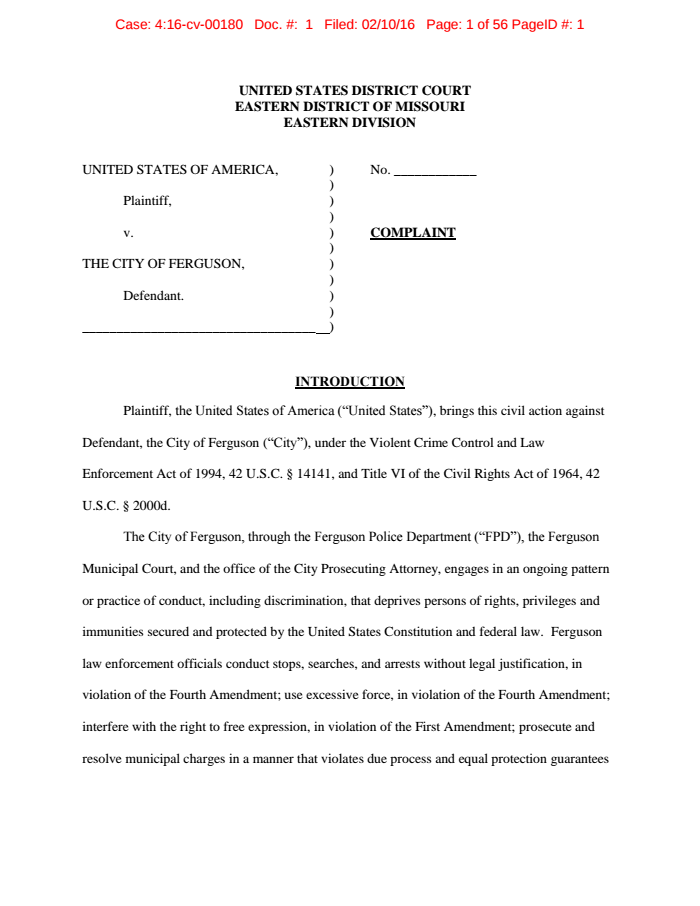
Residents in Ferguson, Missouri, have waited long enough for constitutional policing, Attorney General Loretta Lynch said Wednesday, announcing the U.S. Department of Justice will now fight for their rights in court.
Lynch announced the lawsuit after the Ferguson City Council voted Tuesday to change a proposed settlement on police and government oversight in the community where 18-year-old Michael Brown was shot dead in 2014. A review later found a pattern of racial bias within the city against residents.
"They waited decades for justice," Lynch said. "They should not have to wait any longer."
Ferguson's council agreed with many of the provisions of the settlement, which include requiring officers to wear body cameras, increased oversight and training on use of force, and overhaul of the municipal court system. But officials rejected raising police salaries and that the settlement would apply to any law enforcement agency that might take over policing in the community — such as the St. Louis County Police Department.

A city councilman on Tuesday said he didn't believe the changes to the settlement were unreasonable. In a news release, the city described the vote as a "conditional approval." But Lynch on Wednesday said after 26 painstaking weeks, negotiations were over. The city understood they would face litigation if they rejected the settlement that had been created by federal and local officials, she added.
"Their decision leaves us no further choice," she said.
Allowing the settlement to be voided if control of Ferguson's policing was transferred to another agency was "unconscionable" for the Justice Department, allowing Ferguson to evade changes through maneuvering, Lynch said.
"Our citizens of Ferguson deserve constitutional policing, no matter who is in charge of their police force," she said.
In response to questions of whether enacting the settlement would be too costly for the city, Lynch said the federal government had been sensitive to financial concerns during negotiations and offered some training and technical assistance at no cost. Litigation will be more costly than simply enacting changes, she added.
"There is no price for constitutional policing," she said. "The citizens and residents of Ferguson deserve what is guaranteed every American in the Constitution."

